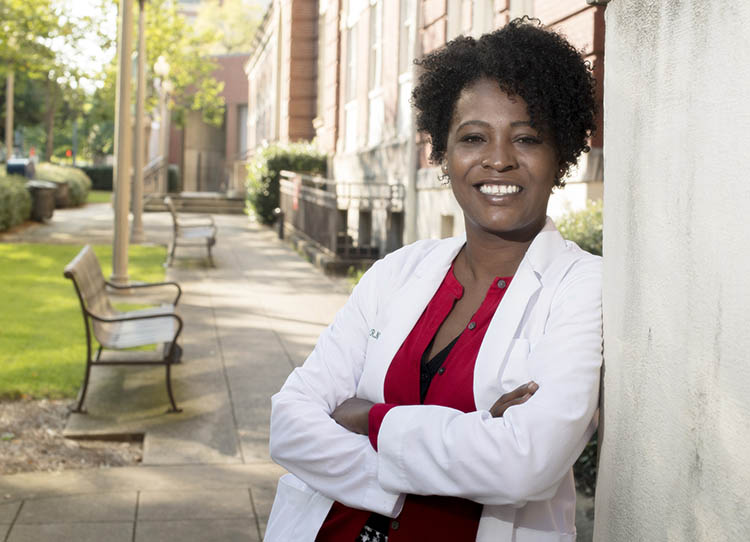
A Glimpse into Nephrology
One of the many specialties in the nursing filed is nephrology—working with kidney patients.
Shamekia Gullatte, RN, BSN, CPN, the Lead Post Kidney/Pancreas Transplant Coordinator at the University of Alabama at Birmingham, has served as a nurse with many different kidney patient populations, including working as a dialysis nurse, a pediatric nephrology nurse, and currently as a transplant coordinator.
What follows is an edited version of our communication.
 As a nephrology nurse, what does your job entail? What do you do on a daily basis?
As a nephrology nurse, what does your job entail? What do you do on a daily basis?
My current job entails educating and managing care of kidney transplant recipients. After working nine years in an outpatient pediatric nephrology setting, I decided two years ago that I want to care for patients who overcame chronic kidney disease and received a transplant. As a kidney transplant coordinator, I meet with newly transplanted patients while they are still in the hospital and provide education about their care. After the patient leaves the hospital, I continue to be a resource for the patient in the outpatient setting.
Why did you choose to work in nephrology? How long have your worked in the field? What prepared you to work in this kind of environment?
As a dialysis nurse, my first professional nephrology position, I became passionate about the disease processes in this patient population. Over the last 13 years, I have worked in various areas of nephrology. I was prepared to work in this environment because I worked 12 combined years as a dialysis nurse and pediatric nephrology nurse caring for children with chronic and acute kidney disease.
My parents laid the foundation for me to be a compassionate person and appreciate every aspect of life, which really are essential attributes of a nephrology nurse. Then I was awarded an excellent education at the prestigious Tuskegee University, where I obtained by Bachelors of Science in Nursing.
What are the biggest challenges of your job?
One of the biggest challenges of my job involves the lack of resources for patients. Some of our patients have limited financial resources and may have difficulties paying medications and sometimes have transportation issues. Although this is a challenge, UAB Transplant has a multidisciplinary team that includes amazing social workers who assist patients with these obstacles.
What are the greatest rewards?
The greatest reward in being a nephrology nurse in transplant is walking into a patient’s room to educate them on their new organ and saying, “Congratulations!” I certainly understand that some patients may have had a tough journey. For example, I can remember when one of my patients told me her story of when she was diagnosed with a rare disease, and she was getting prepared for transplant. This patient had been struggling from dialysis complications. Just to listen to her story leading up to kidney transplant was definitely a tear jerker, but now I was sharing a moment with her that she thought would never come.
I know that I was meant to be a nephrology nurse at UAB Hospital in post-transplant because I get this flutter of joy in my heart and soul every time I receive a new patient.
What would you say to someone considering this type of nursing work? What kind of training or background should s/he get?
To become a nephrology nurse, one would have to earn a degree in nursing and gain clinical experience in nephrology. To become a transplant coordinator at UAB, you have to get all of the above, but also have that little flutter of joy in your heart and soul when a patient receives a kidney transplant. UAB has performed more kidney transplants than any other transplant program in the nation since 1987, and we all take great pride in the care we provide our patients.
Being a nephrology nurse really takes more than just credentials. You have to be a person who is truly compassionate about your patient population, and someone who has a real love and desire for them. I love my patients, and appreciate the opportunity I have to care for them every day.


